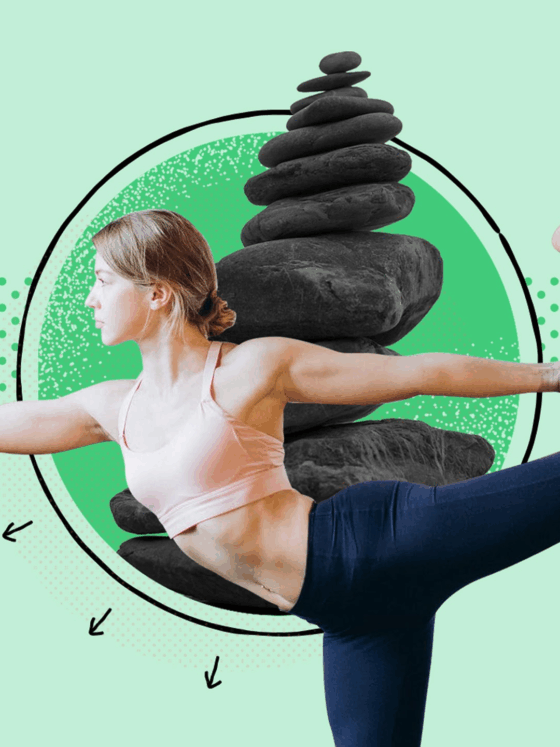How to Manage Stress and Anxiety Naturally

Stress and anxiety have become common companions in today’s fast-paced world. Whether it’s work pressure, family responsibilities, health issues, or just the overwhelming nature of modern life — many of us find ourselves feeling anxious or stressed more often than we’d like. The good news? There are natural, effective ways to manage stress and anxiety without relying solely on medication.
This article will walk you through practical tips, lifestyle changes, and mindset shifts to help you feel more calm, balanced, and in control of your life.
Understanding Stress and Anxiety
Before we talk about solutions, let’s take a moment to understand what stress and anxiety really are.
- Stress is your body’s reaction to any challenge or demand. It can be short-term (like preparing for an exam or a job interview) or long-term (such as dealing with a difficult relationship or financial trouble).
- Anxiety, on the other hand, is a feeling of fear, worry, or unease. It often comes with physical symptoms like rapid heartbeat, sweating, and restlessness.
It’s completely normal to feel stress and anxiety at times. However, when these feelings become chronic or interfere with your daily life, it’s time to take action.
1. Practice Deep Breathing and Mindfulness
One of the quickest and easiest ways to calm your mind is deep breathing.
Try this:
- Sit in a comfortable position.
- Breathe in slowly through your nose for 4 seconds.
- Hold your breath for 4 seconds.
- Exhale slowly through your mouth for 6 seconds.
- Repeat this cycle for 5-10 minutes.
This simple exercise sends a message to your brain to relax.
Mindfulness meditation is another powerful tool. Even spending 5–10 minutes a day focusing on your breath or observing your thoughts without judgment can reduce anxiety and improve focus.
2. Move Your Body
Physical activity is a natural stress reliever. Exercise releases endorphins, also known as “feel-good” hormones, that improve your mood and reduce anxiety.
You don’t need to run a marathon — even a brisk walk, stretching, or dancing to your favorite song counts.
Try to:
- Walk for 30 minutes a day.
- Do yoga or pilates 2-3 times a week.
- Take breaks during work to stretch or move around.
3. Get Enough Sleep
Lack of sleep makes stress worse. When you’re tired, even small problems can feel huge.
Tips for better sleep:
- Stick to a regular sleep schedule.
- Avoid screens 1 hour before bed.
- Create a calming bedtime routine (reading, soft music, warm bath).
- Keep your bedroom cool, dark, and quiet.
Try to aim for 7–9 hours of quality sleep each night.
4. Eat a Balanced Diet
What you eat affects how you feel — mentally and physically.
- Avoid too much caffeine, sugar, and processed foods.
- Include foods rich in magnesium, B vitamins, and omega-3s. These nutrients support your brain and nervous system.
Some calming foods:
- Leafy greens (spinach, kale)
- Nuts and seeds (almonds, flaxseeds)
- Fatty fish (salmon, sardines)
- Whole grains
- Herbal teas (chamomile, peppermint, lemon balm)
Staying hydrated is also key — drink enough water throughout the day.
5. Talk to Someone
You don’t have to go through it alone.
- Talk to a friend or family member: Sometimes just sharing how you feel can ease your mind.
- Seek professional help: A therapist or counselor can teach you coping strategies and offer a safe space to express your emotions.
Talking things out helps you gain perspective and feel supported.
6. Set Realistic Goals and Boundaries
Trying to do too much or please everyone can leave you drained. It’s okay to say no. It’s okay to rest.
Tips:
- Break big tasks into smaller steps.
- Don’t overcommit.
- Give yourself permission to take breaks.
- Prioritize what really matters.
Remember: You don’t have to be perfect. Progress is more important than perfection.
7. Limit Media and Social Media Consumption
Constant news updates and social media comparisons can fuel anxiety.
Try:
- Taking digital breaks.
- Turning off notifications.
- Unfollowing accounts that make you feel bad about yourself.
Instead, spend time doing things that bring joy — like reading, painting, cooking, or gardening.
8. Practice Gratitude and Positive Thinking
Shifting your mindset can help reduce anxiety.
Each day, write down 3 things you’re grateful for. It could be something simple — like a good cup of coffee or a kind word from someone.
Also, practice self-compassion. Be kind to yourself. Speak to yourself the way you would talk to a close friend.
9. Try Natural Relaxation Techniques
There are many natural remedies and practices that may help manage stress:
- Aromatherapy: Essential oils like lavender, bergamot, and frankincense promote relaxation.
- Herbal supplements: Ashwagandha, valerian root, and L-theanine are known for their calming effects (talk to your doctor before using).
- Warm baths: Adding Epsom salts can help soothe both body and mind.
- Listening to calming music: Soft music can lower your heart rate and help you relax.
10. Create a Daily Routine
Having a routine brings structure and predictability, which helps reduce anxiety.
Include:
- Morning and evening rituals
- Time for self-care
- Meals and sleep at regular times
- A balance of work, rest, and fun
Even if your day is busy, carving out just 10–15 minutes for yourself can make a big difference.
Final Thoughts
Managing stress and anxiety isn’t about eliminating them completely — that’s not realistic. Instead, it’s about understanding your triggers, building healthy habits, and learning to respond to challenges in a calmer, more mindful way.
Start small. Choose one or two of the tips above and try them consistently for a week. Notice how you feel. As you build these habits into your lifestyle, you’ll likely notice a shift toward a more peaceful, grounded state of mind.
FAQs
1. Can stress and anxiety go away naturally?
Yes, for many people, stress and anxiety can improve with lifestyle changes like better sleep, healthy eating, exercise, and mindfulness. However, if symptoms are severe or long-lasting, it’s best to seek professional support.
2. How long does it take to reduce anxiety naturally?
It depends on the individual, but some people feel better within a few days or weeks of consistent practice. The key is regular self-care and patience with yourself.
3. Is anxiety a mental illness?
Anxiety becomes a disorder when it interferes with daily life. General anxiety is a natural response to stress, but when it’s constant or overwhelming, it may be a sign of an anxiety disorder that needs treatment.
4. What are the warning signs of too much stress?
Physical signs include headaches, fatigue, upset stomach, and trouble sleeping. Emotional signs include irritability, sadness, feeling overwhelmed, and difficulty concentrating.
5. Can I manage anxiety without medication?
Yes, many people manage anxiety successfully through therapy, lifestyle changes, and natural techniques. However, some may benefit from medication — it’s important to talk to a healthcare provider to explore the best option for you.







